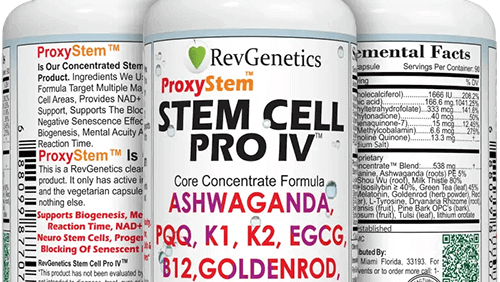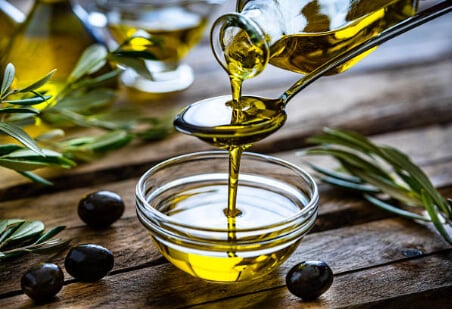People are becoming more conscious of their health, but the myths and misconceptions surrounding supplements and vitamins continue to be prevalent. What do you know about supplements for nutrition? Do you need to have additional vitamins and supplements? If you decide to take them, how much do you need to take and at what time? Are they always potent and safe from contamination?
Myths concerning Vitamins as well as Supplements:
1. If you're eating a balanced diet, you won't require supplements.
Although eating a balanced diet was the best thing to do in the past, this is no longer the scenario. Our fruits and vegetables have only about the same nutritional value as the soil on which they're cultivated. The sad thing is that the nutritional value of our earth has been taken, removed and polluted over the past couple of decades. Sadly, many of the plants growing in today’s soil do not offer the equivalent nutritional benefit they did in the past century. [1]
In addition, many of us have such hectic lives that it's nearly impossible to find or cook three healthy and nutritious meals daily. However, as hard as we attempt to cook nutritious food, we often depend on prepared food items, ready-to-eat meals, or simple fast food to help us complete everything we want to complete or finish within the day.
There are also specific elements, genetics and aims to be considered. Even those who adhere to the absolute healthiest diet and consume balanced meals could have higher nutrition requirements due to age, genetics, or chronic illnesses that aren't fulfilled by food alone.
An excellent example could be that of an antioxidant called Coenzyme Q10 (CoQ10). CoQ10 fuels every cell in your body. However, CoQ10 levels diminish when we get older and are typically lower in those with diverse health issues. Absorption from foods declines as we age, and our bodies, which normally produce this in abundance while young, declines as we grow older. [2]
It is, however, impossible to boost the amount of CoQ10 by consuming only food sources. To get 100mg of CoQ10 through food sources, it is necessary to finish the equivalent of 133 cups of cabbage and 77 cups of broccoli or 921 oysters, or five pounds of liver from a beef. The only method to supply your body with the extra CoQ10 it might require is to supplement it. [3]
2. Taking a multivitamin daily can help fill in the deficiencies from your daily diet.
Some people view multivitamins as an insurance policy, believing they'll take care of any nutritional requirements they might be lacking due to poor diet practices. However, it does not work this way either. While taking multivitamins can be beneficial, none of the most potent supplements can replace the importance of a healthy diet. [4]
Another challenge with using multivitamins to meet your nutritional requirements is deciding which one to pick. There are many hundreds, possibly even hundreds-- of multivitamins available, and all of them have different amounts and combinations of a range of minerals and vitamins. If you're looking to take a multivitamin, you must figure out which offers the most nutrients that meet your particular requirements. This is sometimes difficult, as portions on the labels may not always mean what you think it does.
It is recommended that you test for a range of nutrients with a lab to determine any deficiencies you should take care of. Although a multivitamin is an excellent start, you might be required to supplement with individual nutrients to address the areas you might have a problem. Such as a Vitamin D or Vitamin C deficiency. Maybe even a Zinc or magnesium deficiency, as these tend to be common.
3. The more dose you take, the greater the effect.
Some people believe that if you can get a small amount of something excellent, then more is better. This isn't a great guideline for any aspect of life, not even supplements. Although some supplements are safe and efficient at large doses, others aren't as effective and could even become toxic. For example, taking high doses of Vitamin D with high doses of Calcium may cause kidney issues, bone Pain, and even Heart Attacks in some instances. So it’s good not to overdo some of these combinations. [5][6]
Usually, fat-soluble vitamins are stored within the body and tend to be more poisonous when excessive amounts are consumed. However, the water-soluble vitamins do not build up within the body, but they can have unpleasant side effects if consumed in excess.
Additionally, supplements like unnatural chicken collagen (OsteoTec UC*II) require precise dosage. Small amounts can be adequate for easing Joint pain--more than twice as effective as glucosamine and chondroitin--however, at higher doses, it can have the opposite effect.
Investigating the supplements you are contemplating is essential and determining the ideal dosage to meet your specific needs is critical.
4. Supplements are made from natural substances, so they should be secure.
In the world of supplements, naturally refers to an accessory that originates from a natural source, such as plants, in contrast to being manufactured or synthetic. Just because something comes from a plant does not necessarily mean it's secure. In the end, water hemp is a naturally occurring plant; however, eating it could cause fatal consequences. Naturally, supplements aren't made from toxic plants, but they are still dangerous in taking too much, as mentioned in the previous paragraph. [7]
Another thing that many don't know is that even herbal supplements may interact with prescription drugs, both prescribed and non-prescription. This is why it's crucial to ensure that your doctor knows the accessories you're taking. If your doctor asks you for an inventory of the drugs you're taking, make sure to include any of your daily regimen supplement additions on the list. Since most doctors aren't knowledgeable regarding supplements and possible interactions with other medications, it's an excellent idea to ensure that your pharmacist has the same list.
Suppose you'd like to determine any potential interactions with your medication. In that case, Medscape offers a drug interaction checker which allows you to input every prescription and supplement you take or contemplating to see whether there are any possible interactions.
5. It doesn't matter what time or how you consume your supplements.
Sometimes, we're happy that we've remembered that we need to take supplements, and we might not realize that the time and method used to consume them are crucial. However, like with medication, factors like the time of day and whether or not you take them with or without food items can affect them.
Certain supplements work best when you have an empty stomach, so it's generally ideal to consume them first thing in the morning before consuming anything. Other accessories are much more effective when consumed with food, which is why they are best taken during a meal. Additionally, there are fat-soluble nutrients that must be consumed with meals that contain fat to be effective. [8]
Make sure you review the directions on the supplements you take. The label should provide you with not just the recommended dose; many will also provide the time and method of taking it, as it will affect its absorption.
Conclusion
Supplements can be an excellent supplement to your overall wellness program. They provide vital support to boost your overall health and wellness. Like everything else, you must educate yourself and ensure that you take care of them responsibly and safely.
To learn more about Diet Supplements click here.
References:
- https://www.sciencedirect.com/science/article/abs/pii/S098194282100591X
- https://onlinelibrary.wiley.com/doi/full/10.1111/joim.13456
- https://www.mdpi.com/2076-3921/11/10/1969
- https://www.sciencedirect.com/science/article/abs/pii/S0144861721010833
- https://link.springer.com/chapter/10.1007/978-3-030-90684-9_23
- https://www.mdpi.com/2218-1989/12/3/266
- https://www.taylorfrancis.com/chapters/edit/10.1201/9781003178446-15/toxic-amino-acids-fatty-acids-sanusi-shamsudeen-nassarawa-hauwa-ladi-yusuf-salamatu-ahmad-sulaiman
- https://link.springer.com/article/10.1007/s10461-022-03880-6








